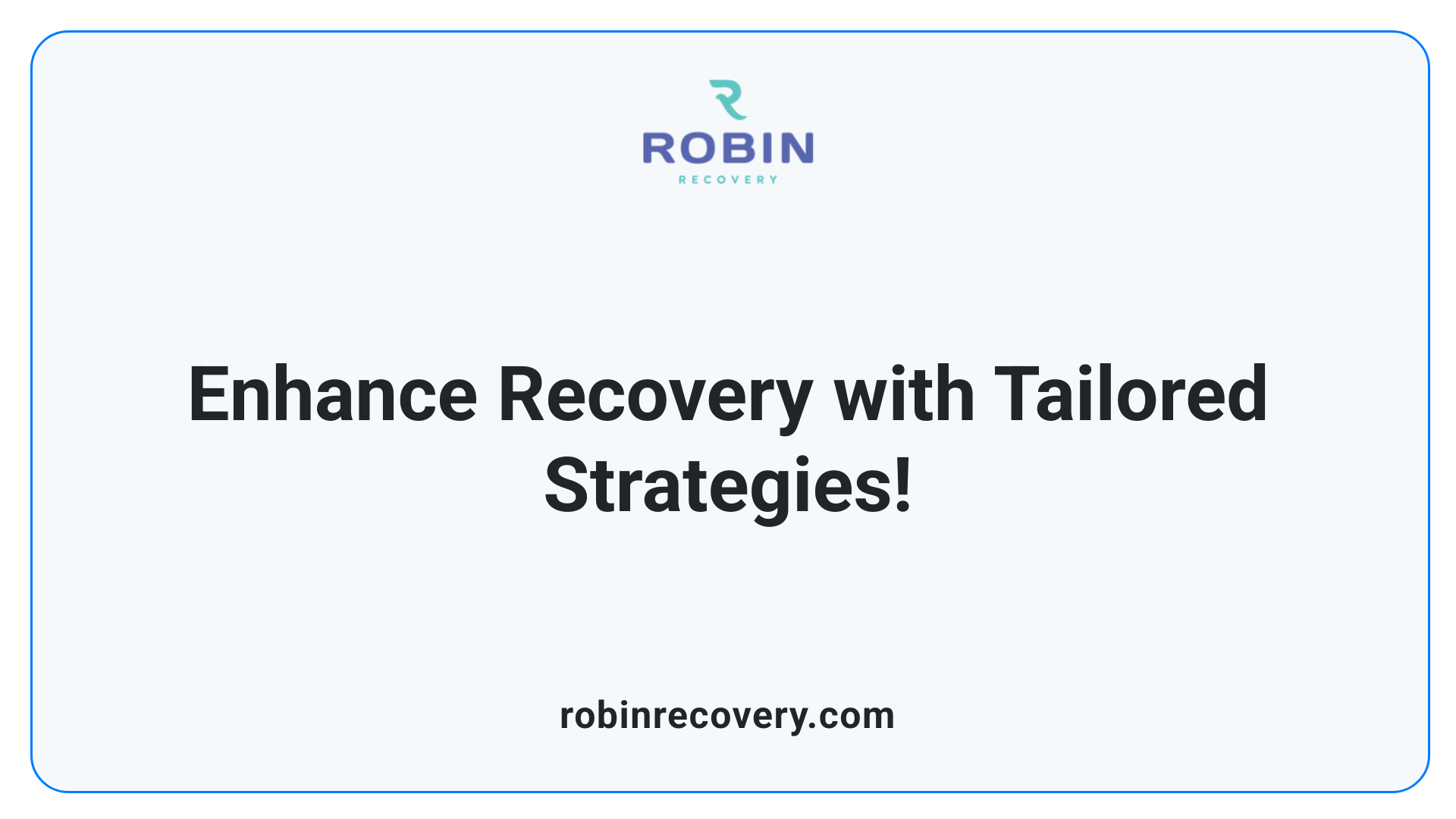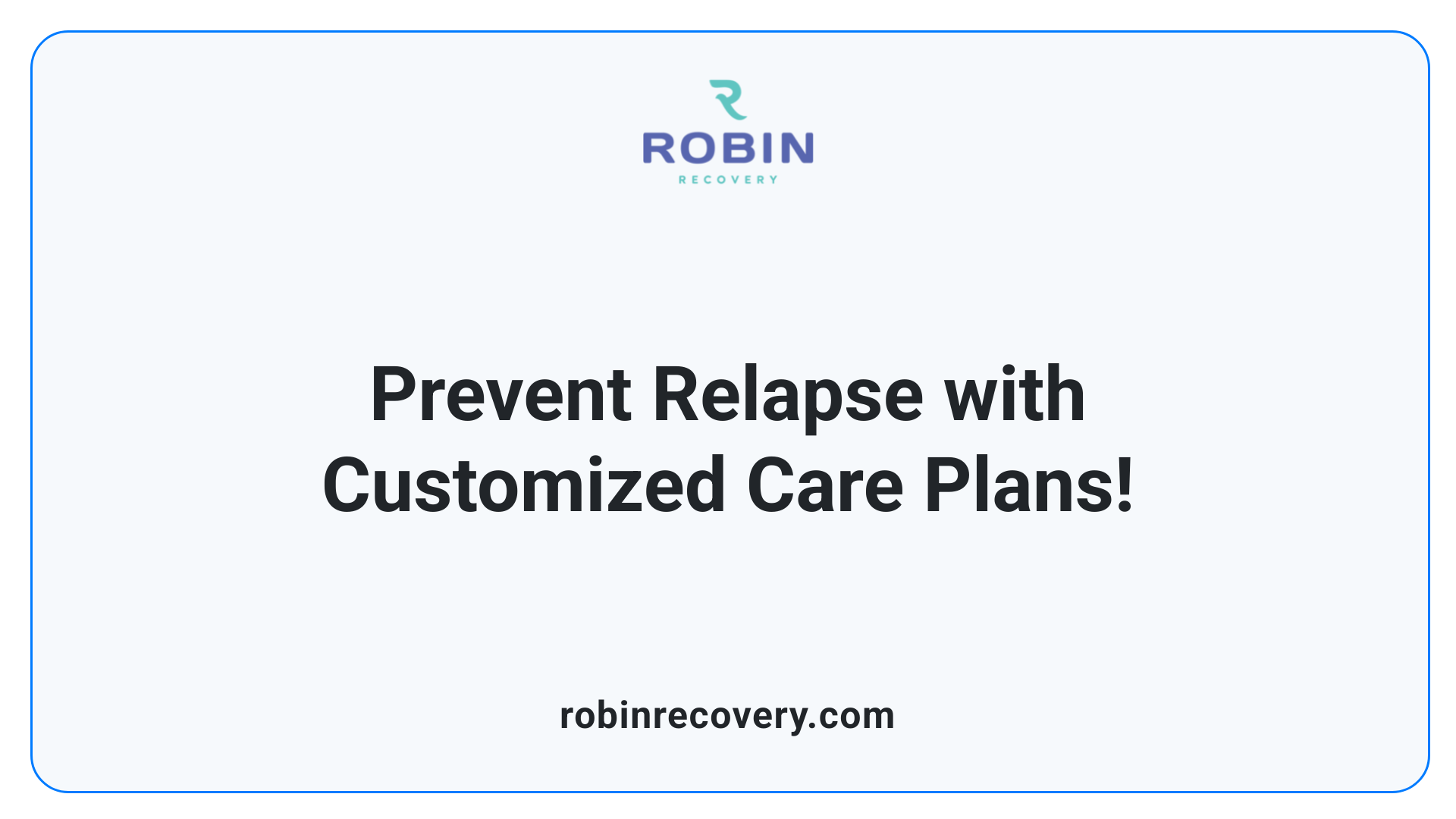The Benefits of Individualized Care in Outpatient Programs

Understanding the Importance of Tailored Care in Outpatient Programs
In an evolving healthcare landscape, individualized care has emerged as a pivotal component of outpatient programs, particularly in mental health and addiction treatment settings. As each patient presents unique challenges and needs, tailoring treatment plans to these specifics not only optimizes engagement and efficacy but also enhances long-term recovery and well-being. The advantages of personalized treatment approaches are many, offering flexibility, support, and a comprehensive care model that meets the diverse needs of patients.
Boosting Engagement and Outcomes with Individualized Care

What are the benefits of individualized care in outpatient programs?
Individualized care in outpatient programs, such as Intensive Outpatient Programs (IOPs), presents substantial advantages by crafting treatment plans that are specifically tailored to each patient’s circumstances and needs. This personalized methodology often leads to enhanced patient engagement, turning the treatment process into an active collaboration rather than a passive experience.
Patients involved in their treatment planning are more likely to take an active role in their therapy, resulting in improved outcomes. For instance, personalized care encourages a supportive environment where patients feel empowered to communicate openly with their healthcare providers. This increased engagement is essential, as mental health disorders affect approximately 50% of the global population by age 75.
IOPs particularly stand out for their flexibility. By allowing individuals to manage their daily responsibilities, such as work or school commitments, alongside receiving intensive care, they cater to a broad demographic. In addition to maintaining regular life activities, IOPs are generally more cost-effective than inpatient treatments, making essential mental health support more accessible.
Research supports the effectiveness of IOPs, indicating they can offer results comparable to inpatient care for conditions like depression. This underscores the critical role individualized care plays in facilitating successful treatment outcomes, making the case for personalizing therapy to meet the unique challenges faced by each individual.
Advancing Recovery Through Personalized Treatment

How does individualized treatment enhance recovery outcomes in addiction and mental health care?
Individualized treatment enhances recovery outcomes by providing tailored strategies that address the unique aspects of a person’s addiction or mental health condition. This approach fosters deeper engagement, as patients who are actively involved in their treatment plans are more likely to adhere to the therapy. This engagement is crucial, as it leads to improved treatment efficacy and better overall health outcomes.
Customized treatment plans take into account specific needs such as co-occurring disorders, family dynamics, and social support, ensuring that the strategies in place are relevant. By focusing on the individual, these plans can effectively reduce relapse rates and promote sustained well-being. Additionally, the establishment of measurable treatment goals allows for real-time adjustments in strategies, enhancing motivation and encouraging continued investment in recovery.
Enhancing motivation and adherence
Personalized treatment not only meets the clinical needs of patients but also aligns closely with their personal goals. This alignment minimizes barriers to recovery, making it easier for patients to engage in their treatment. For instance, in Intensive Outpatient Programs (IOPs), flexible schedules allow individuals to balance their recovery efforts with daily responsibilities—an essential factor that can significantly influence treatment success.
The collaborative relationship fostered between clinicians and patients is another vital element. As trust builds, patients feel more empowered to communicate openly. This dynamic makes it easier for them to voice concerns and preferences, further ensuring that care remains relevant and effective.
Effectiveness of tailored treatments
Evidence increasingly supports that personalized care leads to superior outcomes in both mental health and addiction recovery contexts. When treatment strategies are custom-fitted to address the precise issues faced by individuals, the likelihood of achieving long-lasting recovery increases. Personalized interventions not only tackle the immediate symptoms of addiction but also delve into underlying causes, promoting holistic healing.
In summary, the shift towards individualized treatment is transforming recovery by enhancing motivation, sustaining engagement, and ensuring relevance—key components that ultimately lead to improved health outcomes and reduced risks of relapses.
Individualized Care: A Pillar of Patient Engagement and Efficacy
What role does individualized care play in improving patient engagement and treatment efficacy?
Individualized care is pivotal to enhancing patient engagement and improving treatment outcomes. By crafting personalized treatment plans, providers ensure that interventions align with individual patient preferences and specific mental health needs. This tailored approach fosters a greater sense of ownership over one's health, encouraging patients to take an active part in decisions about their care. Such engagement is a crucial factor as it leads to better adherence to treatment plans and increases satisfaction with the healthcare experience.
Tailored interventions
Tailored interventions have a significant impact on effective treatment. Instead of adopting a one-size-fits-all methodology, individualized care focuses on the unique conditions of each patient. Treatment programs for substance use, for example, benefit greatly from this approach as they often involve careful assessments of personal and medical histories. This creates a more relevant and dynamic treatment framework that adapts as the patient progresses. Evidence supports that individuals receiving personalized care experience better recovery outcomes, reduced relapse risks, and greater overall satisfaction.
Cost-effectiveness of individualized care
In terms of cost-effectiveness, individualized care can be more appealing compared to traditional inpatient treatment options. Programs like Intensive Outpatient Programs (IOPs) offer structured support without the need for costly residential stays. This model allows patients to maintain their daily responsibilities, enhancing the ability to integrate treatment into their lives. With flexible scheduling and the addition of community and peer support, these programs address both clinical and logistical needs, making recovery more accessible.
Aspect Individualized Care Traditional Care Patient Engagement High - active involvement Moderate - passive role Intervention Approach Tailored to individual needs Standardized treatment Cost More cost-effective options Higher due to inpatient stays Risk of Relapse Lower due to personalized focus Higher due to less engagement Satisfaction with Care Higher due to relevance Variable
Overall, the emphasis on individualized care not only improves the efficiency of treatment plans but also contributes to the emotional and physical well-being of patients.
Flexibility and Support in Outpatient Mental Health Treatment
How does outpatient mental health treatment provide flexibility and support through individualized care?
Outpatient mental health treatment offers significant flexibility and support, allowing individuals to participate in therapy while continuing their daily routines. This approach helps avoid disruptions in work and personal life, making it vital for those managing mental health conditions like depression, anxiety, or substance abuse.
A primary feature of this treatment model is the development of tailored plans that meet individual needs. Each treatment regimen is crafted based on a comprehensive assessment of the patient’s unique background, history, and specific challenges, ensuring that every aspect of their mental health is addressed.
Patients can choose from various therapy options, including:
- Cognitive-Behavioral Therapy (CBT)
- Dialectical Behavior Therapy (DBT)
- Support Groups
These modalities not only resonate more deeply with patients but also empower them to embrace their treatment actively. The structure of the outpatient program incorporates flexible scheduling options, including evening, weekend sessions, and virtual therapy, which significantly enhances accessibility.
Furthermore, the collaborative admissions process encourages clients to articulate their challenges. This fosters a sense of empowerment and support as they progress on their recovery journey.
The Integral Role of Individualized Care in Medication Management

How does personalized care impact medication management in outpatient therapy?
Personalized care significantly influences medication management in outpatient therapy by tailoring treatment plans to align with each patient’s unique lifestyle and health conditions. This individualized approach not only enhances the effectiveness of medications but also minimizes potential side effects, leading to higher patient satisfaction and better treatment outcomes.
In outpatient therapy, the integration of personalized medication plans allows for effective monitoring. Clinicians can adjust dosages and explore alternative medications that suit the patient's specific needs, thereby ensuring optimal care. Regular therapy sessions provide opportunities for patients to discuss their experiences with prescribed medications, allowing for timely adjustments as needed.
Moreover, tailored pharmacogenomics plays a crucial role in this individualized treatment. By understanding how a person’s genetic makeup influences their response to medications, healthcare providers can fine-tune treatments that maximize therapeutic benefits while minimizing adverse effects.
This patient-centric model encourages better adherence to medication regimens. When patients feel their treatment plan directly addresses their unique challenges and circumstances, they are typically more motivated to engage actively in their recovery process. In essence, personalized care fosters an environment that enhances trust and communication, enabling a collaborative relationship between patients and providers—a vital component for long-lasting success in treatment.
Tailored Care for Long-term Success in Mental Health and Addiction

How Does Individualized Care Prevent Relapse?
Individualized care plays a critical role in relapse prevention. By creating tailored treatment plans, patients can address their unique triggers and underlying issues effectively. This personalized approach is key to reducing the chances of relapse, as it revolves around a comprehensive assessment of factors such as comorbidity and social support.
What Promotes Sustained Recovery in Mental Health?
Long-term success in recovery is better achieved through an individualized care plan that considers every aspect of a person's mental health. Adaptable treatment goals allow for progress tracking and adjustments as needed, motivating individuals to stay engaged in their development. Participation in group therapy within outpatient programs fosters connections with peers, providing support and shared learning.
How Does the Whole-person Care Approach Help?
The whole-person care approach integrates various therapeutic modalities, including family involvement and holistic strategies, resulting in better recovery outcomes. Such treatment plans leverage the patient’s strengths and address unique challenges to create a supportive environment conducive to healing.
By prioritizing personalized treatment, programs ensure patients are more engaged, leading to higher satisfaction and success rates in their recovery journeys.
The Importance of Family and Community Integration in Outpatient Care
Role of Family Support
Family involvement is pivotal in outpatient care, especially for children undergoing treatment. A family reintegration approach encourages healthy relationships, vital for emotional healing. By including family in treatment plans, patients feel supported, reducing feelings of isolation which often accompany mental health struggles. This cooperation fosters a nurturing environment, enhancing recovery outcomes.
Community Engagement
Integrating community support into outpatient care enhances overall recovery. Programs often include community networks that provide additional resources, encouragement, and connections, essential for sustained progress. Active participation in community activities not only offers social support but also helps in building essential life skills that benefit recovery.
Benefits of Group Therapy
Group therapy is a cornerstone of outpatient programs. It creates a safe space where individuals can share experiences and learn from each other. Participants gain valuable insights and coping strategies while building a sense of belonging, reducing stigma associated with their conditions. The relational support found in group settings significantly enhances treatment adherence and overall recovery effectiveness.
Comprehensive and Holistic Approaches in Outpatient Programs
What are holistic healing practices in outpatient programs?
Holistic healing practices in outpatient programs emphasize treating the whole person, not just the symptoms of addiction or mental health disorders. This includes integrating physical, emotional, and spiritual well-being into the recovery process. Techniques may involve mindfulness, yoga, nutritional guidance, and other complementary therapies that promote overall health.
How is therapy integrated in a multifaceted approach?
Multifaceted therapy integration in outpatient programs typically includes a combination of therapies such as Cognitive Behavioral Therapy (CBT), group support, and family involvement. By addressing diverse aspects of recovery, these programs can tailor interventions that best suit individual needs, enhancing engagement and effectiveness.
How is overall wellness prioritized in these programs?
Outpatient programs prioritize overall wellness through structured care that focuses on relapse prevention and community support. Individualized plans are designed based on comprehensive assessments, ensuring treatments not only address the addiction but also underlying issues, such as mental health challenges and relational dynamics. This cohesive approach fosters long-lasting recovery by equipping participants with tools for maintaining sobriety in daily life.
Focus Area Description Key Benefits Holistic Healing Integrative treatment of body, mind, and spirit Enhances overall health and recovery Multifaceted Therapy Combination of therapies tailored to specific needs Increases treatment effectiveness Overall Wellness Focus Continuous support addressing addiction and mental health Promotes sustainable recovery outcomes
Conclusion: Embracing Individualized Care for Better Health Outcomes
In the quest for more effective outpatient treatment models, individualized care stands out as a transformative approach that significantly enhances patient outcomes. By recognizing the necessity to tailor treatment plans to each patient's unique profile, healthcare providers can facilitate more meaningful engagement, ultimately driving better recovery rates and satisfaction levels. This patient-centered approach, especially prominent in Intensive Outpatient Programs, supports not only the recovery process but also the broader well-being of individuals by providing a flexible, comprehensive, and supportive treatment experience. Embracing this paradigm shift towards personalized care can pave the way for more sustainable health improvements and a more empowered patient population.
References
- The Importance of Individualized Care in PHP Programs
- Benefits of An Individualized Treatment Plan For Addiction
- The Benefits of Individualized Treatment Plans
- 5 Benefits of an Intensive Outpatient Program (IOP) | PrairieCare
- What Are The Benefits of Developing an Individualized Care Plan?
- Intensive Outpatient Programs vs Individual Therapy
- Chapter 3. Intensive Outpatient Treatment and the Continuum of Care
- 4 Benefits of Outpatient Treatment for Your Child
- 5 Benefits of an Intensive Outpatient Program - True Life Center
